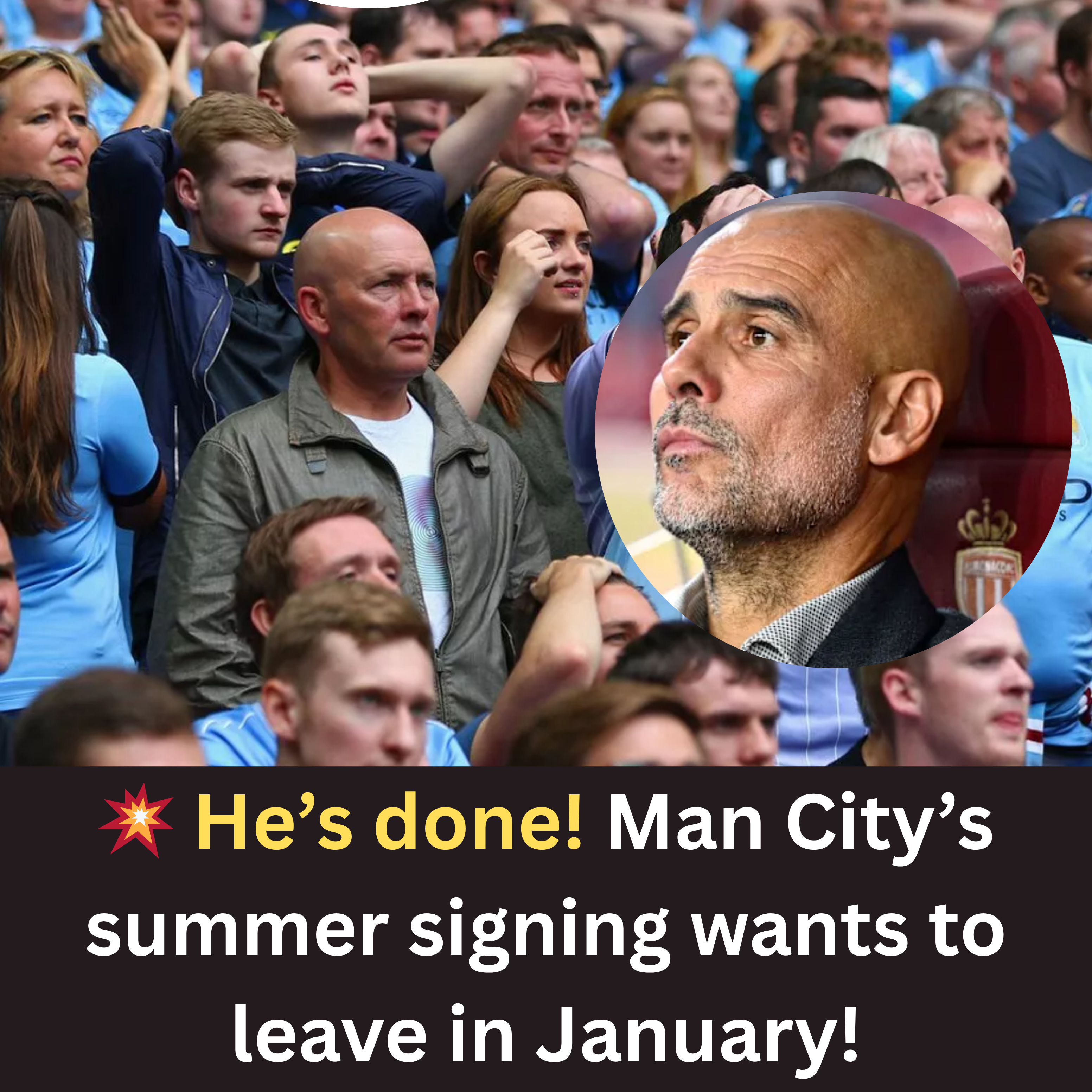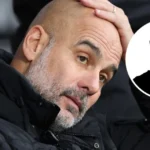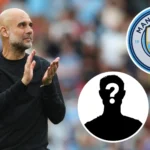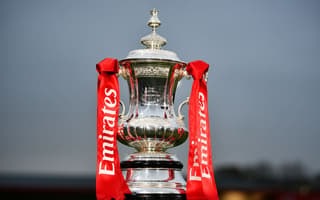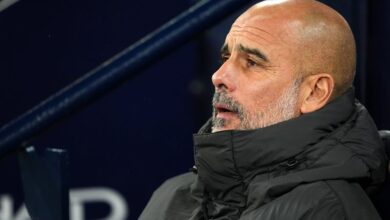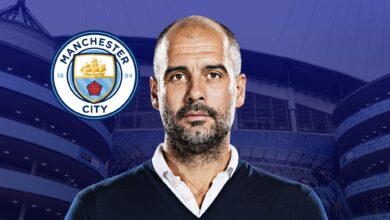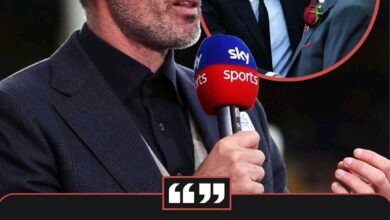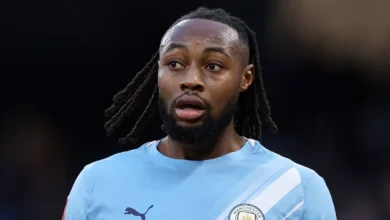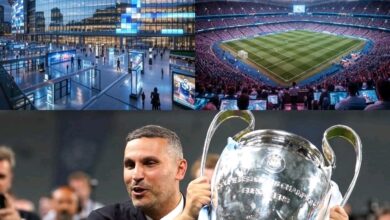Pep Guardiola shares thoughts on Man City’s first-choice goalkeeper
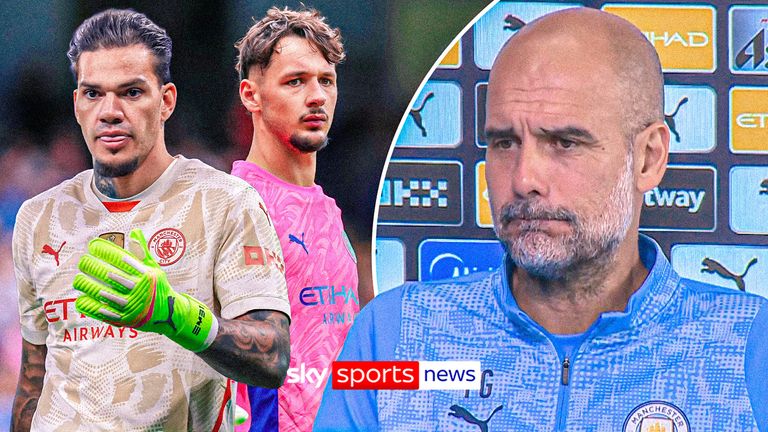
Pep Guardiola’s Goalkeeper Dilemma: The James Trafford Era and Ederson’s Uncertain Future at Manchester City
Introduction: A New Chapter in City’s Goalkeeping Story
Manchester City’s 2025/26 season has begun with unexpected turbulence between the posts, as Pep Guardiola finds himself navigating one of the most intriguing goalkeeper situations of his managerial career. The 2-0 defeat to Tottenham Hotspur at the Etihad Stadium in only their second Premier League match has thrust 22-year-old James Trafford into the spotlight, while Brazilian stalwart Ederson remains conspicuously absent from the starting lineup amid persistent transfer speculation.
This developing narrative represents more than just a tactical decision or a temporary setback; it embodies the complex intersection of youth development, veteran experience, financial considerations, and the relentless pressure that accompanies elite-level football management. As Guardiola himself acknowledges, the situation remains fluid, with “everything possible” until the transfer window closes, creating a fascinating case study in modern football’s delicate balance between loyalty, pragmatism, and sporting ambition.
The stakes could not be higher for Manchester City, a club that has built its recent success on meticulous planning, tactical precision, and unwavering commitment to excellence. The goalkeeper position, often considered the most psychologically demanding role in football, has suddenly become the focal point of intense scrutiny, with implications that extend far beyond individual performances to encompass squad dynamics, transfer strategy, and the club’s broader aspirations for the season ahead.
The James Trafford Experiment: Promise and Growing Pains
James Trafford’s journey to Manchester City’s first-choice goalkeeper position represents one of the most remarkable rises in recent English football. The 22-year-old’s progression through the club’s youth system and subsequent loan spells have been carefully orchestrated to prepare him for this moment, yet nothing could have fully prepared him for the intense scrutiny that followed his error in the crucial second goal against Tottenham.
Guardiola’s public backing of Trafford in the aftermath of that mistake reveals the Catalan manager’s deep understanding of goalkeeper psychology and his commitment to nurturing young talent. “Always they have the arms on their shoulders, always. They don’t believe it, but we take care of them,” Guardiola explained, demonstrating the protective approach that has become synonymous with his management of emerging players. This statement reflects not just tactical support but a profound recognition of the unique pressures faced by young goalkeepers at the highest level.
The technical aspects of Trafford’s development have been evident throughout his career trajectory. His shot-stopping ability, command of his penalty area, and distribution skills have all shown consistent improvement during his formative years. However, the transition from promising prospect to reliable first-choice goalkeeper at a club of Manchester City’s stature involves challenges that extend far beyond technical proficiency.
The psychological dimension of Trafford’s situation cannot be understated. Modern goalkeeping demands not just physical and technical excellence but mental resilience that allows players to recover quickly from mistakes and maintain confidence under extreme pressure. Guardiola’s emphasis on the player’s “huge personality” suggests recognition of these qualities, while his admission that he “would not like it if he is not concerned” acknowledges the healthy balance between confidence and self-awareness that elite goalkeepers must maintain.
Trafford’s development has been shaped by Manchester City’s comprehensive approach to goalkeeper coaching, which emphasizes not just traditional shot-stopping but the modern requirements of playing out from the back, sweeping behind a high defensive line, and contributing to the team’s overall tactical approach. Under the guidance of specialized goalkeeper coaches, he has developed the technical skills necessary to function within Guardiola’s possession-based system.
The young goalkeeper’s loan experiences have provided crucial exposure to different tactical systems and varying levels of pressure, allowing him to develop the adaptability and mental strength required for his current role. These experiences, while valuable, could not fully replicate the unique demands of representing Manchester City in high-stakes Premier League encounters.
Ederson’s Absence: The Galatasaray Connection and Transfer Speculation
The most intriguing aspect of Manchester City’s current goalkeeper situation lies not in who is playing, but in who is not. Ederson’s absence from the opening fixtures of the 2025/26 season has generated intense speculation about his future at the club, with Turkish giants Galatasaray emerging as the most concrete potential destination.
Ederson’s potential departure would represent the end of an era at Manchester City. Since his arrival from Benfica in 2017, the Brazilian has been instrumental in the club’s tactical evolution, providing the technical foundation for Guardiola’s possession-based approach. His ability to play accurate long passes, sweep effectively behind City’s high defensive line, and maintain composure under pressure has made him an integral component of the team’s success.
The financial implications of Ederson’s potential transfer are significant for both Manchester City and any acquiring club. At 31 years of age, he represents a player at the peak of his powers with several years of elite performance still ahead of him. For City, his sale would generate substantial transfer revenue while potentially reducing the wage bill, creating opportunities for investment in other areas of the squad.
Galatasaray’s interest in Ederson reflects the Turkish club’s ambitious approach to squad building and their desire to compete at the highest levels of European football. The Istanbul-based club’s ability to offer competitive terms, combined with the appeal of regular first-team football and the opportunity to be the undisputed number one, makes them an attractive destination for the Brazilian international.
From Ederson’s perspective, the potential move represents several compelling factors. The opportunity to be the focal point of a major European club’s project, combined with the financial incentives typically associated with moves to Turkey, creates a package that may be difficult to refuse. Additionally, the chance to experience a different football culture and continue his development in a new environment adds another dimension to the appeal.
The timing of these transfer discussions coincides with a crucial period in Ederson’s career. At 31, he faces decisions that will likely determine the trajectory of his remaining years at the highest level. While Manchester City can offer Champions League football and the opportunity to compete for major trophies, the uncertainty surrounding his first-choice status may influence his thinking about future opportunities.
Guardiola’s Tactical Philosophy and Goalkeeper Requirements
Pep Guardiola’s approach to goalkeeper selection has always been informed by his comprehensive tactical philosophy, which views the goalkeeper not as a separate entity but as an integral part of the team’s overall strategic approach. This perspective significantly influences how he evaluates and utilizes his goalkeeping options, extending beyond traditional metrics to encompass tactical understanding, technical proficiency, and psychological resilience.
The evolution of the goalkeeper role under Guardiola’s management has been one of the most significant tactical developments in modern football. His goalkeepers are expected to function as auxiliary outfield players, capable of initiating attacks with precise distribution, supporting possession retention under pressure, and providing tactical flexibility through their positioning and movement.
Trafford’s integration into this system requires mastery of several key elements that distinguish modern goalkeeping from traditional shot-stopping. His ability to receive passes under pressure from center-backs, make quick decisions about distribution options, and maintain composure when facing aggressive pressing represents crucial skills that extend far beyond basic goalkeeping technique.
The spatial awareness required of Guardiola’s goalkeepers involves understanding not just their own positioning but the movement patterns of teammates and opponents throughout the pitch. This tactical intelligence allows them to make informed decisions about when to sweep behind the defensive line, when to come for crosses, and how to position themselves to support different phases of play.
Guardiola’s emphasis on building play from the back places unique demands on his goalkeepers’ technical abilities. The precision required for both short and long distribution, the ability to use both feet effectively, and the composure to make correct decisions under intense pressure represent skills that have become essential for success in his tactical system.
The psychological aspects of playing goalkeeper under Guardiola involve managing the additional responsibility that comes with being actively involved in the team’s tactical approach. Unlike traditional goalkeeping roles where mistakes typically result from shot-stopping errors, Guardiola’s goalkeepers face scrutiny for distribution decisions, positioning choices, and tactical awareness that extends throughout the match.
The Development of Modern Goalkeeping at Manchester City
Manchester City’s approach to goalkeeper development represents one of the most sophisticated programs in world football, reflecting the club’s commitment to innovation and excellence in all aspects of player development. The integration of sports science, psychological support, and tactical education has created a comprehensive framework for developing goalkeepers capable of thriving in modern football’s demanding environment.
The technical foundation of City’s goalkeeper development program emphasizes the dual requirements of traditional shot-stopping excellence and modern distribution skills. Young goalkeepers in the system are trained to view themselves as playmakers, capable of initiating attacks and supporting possession retention through precise passing and intelligent decision-making.
Trafford’s progression through this system has involved exposure to various tactical scenarios, allowing him to develop the adaptability and understanding necessary for success at the highest level. The program’s emphasis on game intelligence extends beyond individual technique to encompass tactical awareness, spatial understanding, and the ability to read and react to complex match situations.
The psychological support provided to developing goalkeepers acknowledges the unique mental challenges associated with the position. The program includes specific modules addressing confidence management, mistake recovery, pressure handling, and the development of leadership qualities that allow goalkeepers to effectively communicate with and organize their teammates.
Modern goalkeeper coaching at Manchester City also emphasizes physical development that extends beyond traditional goalkeeping requirements. The demands of playing as a sweeper-keeper, supporting high defensive lines, and contributing to attacking phases require specific physical attributes and conditioning approaches that differ significantly from conventional goalkeeper training.
The integration of technology in goalkeeper development provides detailed analysis of technical performance, decision-making patterns, and tactical awareness. This data-driven approach allows coaches to identify specific areas for improvement and track progress in ways that were previously impossible, creating more efficient and effective development pathways.
The Broader Context: Transfer Market Dynamics and Squad Planning
The goalkeeper situation at Manchester City exists within the broader context of modern football’s transfer market dynamics, where clubs must balance immediate performance needs with long-term strategic planning, financial considerations, and regulatory requirements. The decisions surrounding Trafford and Ederson reflect these complex intersections of sporting and business considerations.
The financial implications of goalkeeper transfers have evolved significantly in recent years, with clubs recognizing the strategic value of investing in players capable of contributing to both defensive solidity and attacking phases of play. The premium placed on goalkeepers with Ederson’s skill set reflects this tactical evolution and creates opportunities for significant transfer fees.
Manchester City’s position in the transfer market is influenced by Financial Fair Play regulations, which require careful management of squad costs and transfer spending. The potential sale of Ederson could provide financial flexibility for investment in other areas while potentially reducing ongoing wage commitments, creating a more sustainable financial structure.
The development of Trafford represents a significant asset for Manchester City, both in sporting and financial terms. Home-grown players provide advantages in terms of squad registration requirements while potentially representing substantial future transfer values if their development continues successfully. This dual benefit makes youth development programs increasingly valuable for major clubs.
The international dimension of goalkeeper transfers adds complexity to decision-making processes. Ederson’s status as a Brazilian international and his experience in European competitions makes him an attractive proposition for clubs seeking to enhance their profile and competitive capabilities. This international appeal can significantly influence transfer valuations and negotiations.
Psychological Dimensions: Managing Pressure and Expectations
The psychological aspects of Manchester City’s goalkeeper situation extend far beyond individual player management to encompass team dynamics, fan expectations, and media scrutiny. Guardiola’s handling of these psychological factors demonstrates his sophisticated understanding of the mental game that underpins elite football performance.
Trafford’s psychological development as Manchester City’s number one goalkeeper involves managing expectations that extend far beyond his years of experience. The transition from promising prospect to first-choice goalkeeper at one of world football’s most demanding clubs requires mental resilience that can only be developed through experience and proper support systems.
The impact of public scrutiny on young goalkeepers cannot be understated, particularly in the modern media environment where individual mistakes are analyzed extensively and can quickly become defining moments in public perception. Guardiola’s protective approach recognizes these pressures while working to build the mental fortitude necessary for long-term success.
The psychological dynamics within the squad are equally important, as teammates must maintain confidence in their goalkeeper while understanding the transitional nature of the current situation. This balance requires careful management to ensure that defensive solidity is maintained despite the uncertainty surrounding the position.
Fan expectations represent another psychological factor that influences the goalkeeper situation. Manchester City supporters, accustomed to excellence and success, must adjust their expectations while supporting a young player’s development. This transition requires patience and understanding that may not always align with immediate performance demands.
Tactical Implications: How Goalkeeper Choice Affects Team Strategy
The choice between Trafford and Ederson (when available) has significant tactical implications that extend throughout Manchester City’s playing system. Each goalkeeper brings different strengths and characteristics that influence how the team approaches both defensive and offensive phases of play.
Trafford’s style of play emphasizes quick decision-making and aggressive distribution, potentially allowing City to transition more rapidly from defensive to attacking phases. His willingness to take risks with his passing may create additional opportunities for surprising opponents with unexpected attacking developments, though this approach also carries increased risk of turnovers in dangerous areas.
The defensive implications of goalkeeper choice extend beyond individual shot-stopping ability to encompass communication, organization, and leadership qualities. A goalkeeper’s ability to effectively communicate with defenders, organize set-piece marking, and provide leadership during crucial moments can significantly influence defensive performance and overall team cohesion.
The offensive contributions of modern goalkeepers have become increasingly important in Guardiola’s tactical system. The ability to provide accurate long passes, support short passing combinations, and create numerical advantages through positioning represents crucial elements that can determine the success of attacking phases and overall tactical approach.
Set-piece situations provide another area where goalkeeper characteristics significantly influence tactical options. Different goalkeepers bring varying strengths in terms of aerial ability, decision-making in crowded areas, and distribution from dead-ball situations, requiring tactical adjustments to maximize these strengths while minimizing potential weaknesses.
The International Dimension: Impact on National Team Selection
The goalkeeper situation at Manchester City has implications that extend beyond club football to encompass international careers and national team considerations. Both Trafford and Ederson face decisions that could significantly influence their international prospects and long-term career trajectories.
For Trafford, establishing himself as Manchester City’s first-choice goalkeeper represents a crucial step toward potential England selection. The pathway to international recognition for English goalkeepers is highly competitive, requiring consistent performance at the highest club level to warrant consideration for national team inclusion.
Ederson’s situation with the Brazilian national team adds another layer of complexity to his decision-making process. Regular playing time and high-level performance are essential for maintaining his position in one of world football’s most competitive goalkeeper hierarchies. The impact of any transfer decision on his international prospects must be carefully considered.
The scheduling demands of international football also influence club-level goalkeeper management. The physical and mental demands of international tournaments, qualifiers, and friendlies require careful workload management to ensure peak performance throughout extended seasons.
Looking Forward: September Decisions and Long-term Planning
Guardiola’s indication that clarity will emerge “after matches in September” suggests that the coming weeks will be crucial in determining Manchester City’s long-term goalkeeper strategy. This timeline coincides with the closing of the transfer window and provides opportunities for both players to demonstrate their capabilities in high-pressure situations.
The upcoming fixtures against Brighton, Manchester United, and Arsenal will provide crucial evidence for evaluating Trafford’s readiness for the demands of Manchester City’s first-choice goalkeeper position. These matches, varying in tactical demands and pressure levels, will offer comprehensive insights into his development and adaptation.
The Champions League dimension adds another layer of complexity to the decision-making process. European competition presents unique challenges that require specific tactical and psychological attributes, making the goalkeeper choice even more crucial for the club’s overall ambitions.
Long-term squad planning must balance immediate performance needs with future development opportunities and financial sustainability. The decisions made regarding the goalkeeper position will influence Manchester City’s approach to squad building for several seasons, making the current situation particularly significant for the club’s strategic planning.
Conclusion: The Intersection of Development, Ambition, and Reality
Manchester City’s goalkeeper situation embodies the complex realities of modern elite football, where sporting ambition intersects with financial pragmatism, youth development meets immediate performance demands, and individual careers are shaped by club strategies and market forces. Pep Guardiola’s management of this situation demonstrates his sophisticated understanding of these multifaceted challenges.
The coming weeks will likely determine not just Manchester City’s goalkeeper for the 2025/26 season, but potentially the trajectory of both James Trafford’s and Ederson’s careers. For Trafford, the opportunity represents a chance to establish himself among Europe’s elite goalkeepers, while for Ederson, the decisions made could define the final chapters of his career at the highest level.
Regardless of the ultimate resolution, the situation provides valuable insights into the evolving nature of goalkeeper development, the psychological challenges of elite competition, and the strategic considerations that shape modern football’s most successful clubs. As Guardiola noted, “everything is possible” until the transfer window closes, ensuring that Manchester City’s goalkeeper story will continue to evolve with significant implications for all involved parties.

